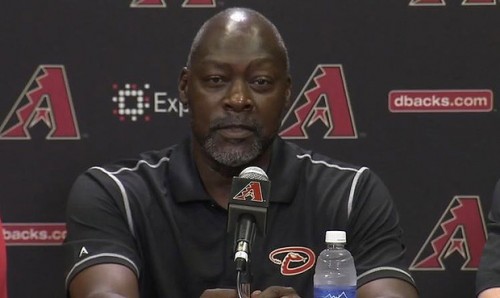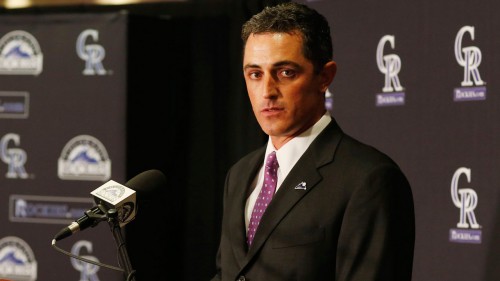In Major League Baseball and other professional sports, players and sometimes managers get the lion’s share of attention. General managers are less well known, although there are some exceptions, like Dave Dombrowski of the Detroit Tigers and Brian Cashman of the New York Yankees.
It turns out that the role of general manager is rapidly changing, according to speakers at the analytics conference put on last week by the Society of American Baseball Research.
The conference featured two of the newest general managers in baseball: Rockies general manager Jeff Bridich, who is in his first year on the job, and Dave Stewart, general manager of the Arizona Diamondbacks, who assumed his responsibilities last September.
Here are a few ways that the job is different than in the past.
Then: former player. Now: trained business executive. Stewart, who spent 16 seasons in the major leagues, and a dozen years as an agent, is one of only four former players now serving as general managers, according to Brian Kenny of the MLB Network, who moderated the panel.
The new model is Bridich, who is a graduate of Harvard, and worked for the commissioner of baseball, as well as serving for the past decade in leadership roles in the Rockies’ organization.
That business acumen is crucial when it comes to performing the management part of the GM’s job, Bridich told the audience. For instance, he has never worked full-time as a baseball scout, so he must rely on the acumen of the Rockies’ scouting staff.
Any good manager needs to be able to say, “I need help in this area. If you can’t do that, you probably won’t last long,” Bridich said.
Then: lightning fast trades. Now: deep dives. The movie, “Moneyball,” depicts the Oakland Athletics’ Billy Beane making rapid fire trades in an effort to remake his ball club. In reality, some trades take months or even years to come about, the general managers say.
“It’s a pretty well defined process,” Bridich said. “So few trades are one or two phone calls.” Instead, trades are often the result of conversations among the various staff members of a ball club.
At the D-Backs, Stewart says he talks to the club’s chief baseball officer, the legendary manager Tony La Russa. He talks to members of the scouting staff, as well as people inside and outside the industry. “There’s a lot of back and forth,” says Stewart.
Bridich adds that the Rockies often play devil’s advocate when it comes to a trade, coming up with the weaknesses of the move as well as its potential strengths. “All that takes time, it takes people and our collective brainpower,” Bridich said.
Added Stewart, “If we’re comfortable, we make a decision.”
Get today’s business news in your inbox–sign up for our daily Must Read Money Stories.
Then: ear to the ground. Now: ignoring social media. In an earlier time, general managers were often alert for the buzz about a potential move.
Now, both Stewart and Bridich say they ignore chatter on social media about what a club may or may not be doing.
For one thing, the GMs don’t want their consideration process affected by outsiders’ opinions. “I try not to look at it,” says Stewart. “A lot of times, that can throw you off and alter your thoughts from what you are trying to do.”
Says the Rockies’ general manager: “There is no pure benefit in staying in touch” with speculation on social media. “It’s difficult to glean daily value from that. It’s a choice you make.”












